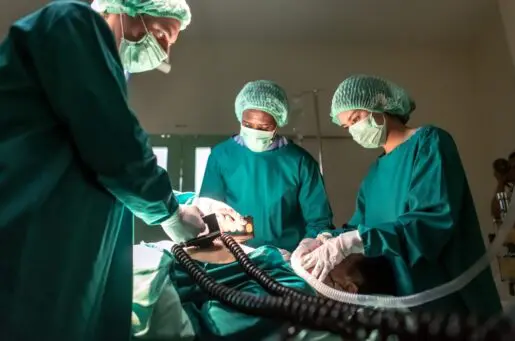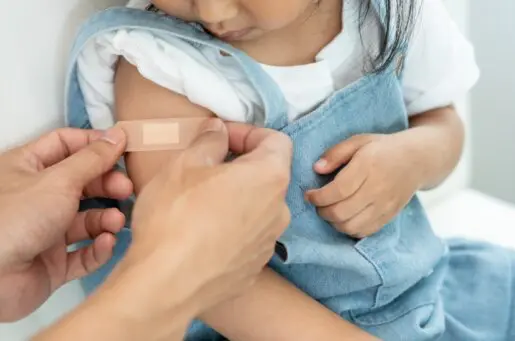Bioethics Forum Essay
Midwives Are Essential for Improving Mississippi’s Maternal and Infant Health
The Mississippi State Department of Health recently declared infant mortality a public health emergency. The state’s infant mortality rate — deaths within the first year of life — is not only the highest in the nation, it is also rising. Mississippi is an important case study for understanding how limited access to midwifery care represents both a reproductive ethics and reproductive justice issue that warrants urgent attention and discourse.
With 9.7 infant deaths per 1,000 live births, Mississippi’s 2024 infant mortality rate is at its highest in more than 10 years. There is a gaping disparity in outcomes: The mortality rate of Black infants is 1.57 times higher than the state average and more than double the rate of white, non-Hispanic babies (2.62) and Hispanic babies (2.41). In one year, Mississippi saw a 24% increase in Black infant mortality. An important marker of the overall health of a society, the rising infant mortality rate in Mississippi signals a broader national health crisis.
Actionable solutions are needed now. While the Mississippi health department’s press release offered several recommendations to improve infant health outcomes, it omitted any explicit mention of expanding access to midwifery care, a proven strategy for improving maternal and infant health. The World Health Organization identifies midwifery as key to reducing global maternal mortality rates and neonatal deaths, deaths within the first 28 days of life. This is an importantpoint to highlight because children less than 28 days old are “driving much of the increase” in Mississippi’s infant mortality rate. Yet, Mississippi has some of the most restrictive midwifery laws in the country. Midwives attend just 1.9% of births in the state, one of the lowest percentages in the country.
To reduce infant deaths, the Mississippi health department suggests “expanding community health worker programs to connect mothers and babies with care and resources where they live” and “eliminating OB [obstetrics] deserts.” Midwives are uniquely positioned to implement these recommendations. They have the expertise to support births at home, in freestanding birth centers, and in the hospital and are well-equipped to address many reproductive health needs. Fifty-one percent of Mississippi counties are maternity care deserts, “areas without access to birthing facilities or maternity care providers.” With many hospitals closing their labor and delivery units especially in rural areas, the need for midwifery care is increasing and should be prioritized as a central component of the state’s health efforts.
Particularly in the segregated South, Black midwifery has had a long and storied history. Black midwives provided essential reproductive health care and were deeply respected as trusted healthcare experts in the communities they served. While midwifery is one of the world’s oldest vocations, its near decimation as a profession in the United States is rooted in racial injustice, particularly anti-Black racism deeply embedded in the healthcare system. Quality midwifery care improves health outcomes for all women and people who give birth by providing access to the full spectrum of reproductive health care in a safe and supportive space.
The health crisis in Mississippi highlights how limited access to care is a reproductive justice concern. The ties between infant health and maternal health are obvious and are important to acknowledge because Mississippi simultaneously confronts one of the nation’s highest maternal mortality rates and the highest infant mortality rate. Yet, nearly six weeks after its infant mortality emergency declaration, the Mississippi health department laid off employees working in the Office of Preventive Health and Health Equity.
The dismantling of reproductive health infrastructure nationally undermines efforts to advance maternal and infant health outcomes. Notably, the U.S. Department of Health and Human Services Secretary significantly downsized the Centers for Disease Control and Prevention’s Division of Reproductive Health. Consequently, the federal Pregnancy Risk Assessment Monitoring System (PRAMS), the CDC’s premier pregnancy surveillance system, was suspended. To reduce mortality and support thriving communities, we must prioritize high-quality care across the pregnancy continuum by strengthening access to community health resources, including mental and social support services. Midwives have long advanced the health of individuals, families, and communities. Their contributions are especially relevant in today’s efforts and ongoing challenges to improving maternal and reproductive equity.
Healthy People 2030 aims to significantly reduce infant mortality rates by addressing the underlying social determinants of health, including access to quality healthcare, education on safe sleep practices, and the promotion of breastfeeding. With their preventive care approaches across a patient’s reproductive life span, midwives are equipped with the skills and training to support national maternal and infant health goals and to proactively meet communities’ holistic needs long before a public health crisis unfolds.
Kelley Akhiemokhali, MA, is a clinical research associate in the Center for Medical Ethics and Health Policy at Baylor College of Medicine.
Faith E. Fletcher, PhD, MA, is an associate professor in the Center for Medical Ethics and Health Policy at Baylor College of Medicine. She is also a Hastings Center Fellow and a Greenwall Bioethics Faculty Scholar. @FaithEFletcher
Any opinions, conclusions, and recommendations expressed in this article are those of the author and do not represent the views of Baylor College of Medicine.














It is sobering to continue to see this headline, year after year, highlighting the presence of tragic infant and maternal outcomes in a nation that is hailed as one with exemplary medical knowledge and capability. As I have continued my own healthcare education, it has been staggering to come face-to-face with the impasse that is our medical knowledge and aspirations, with our flawed healthcare system. So many legal, political, and financial roadblocks exist, preventing the implementation of life-saving medical treatment. One of these many legal/political/financial roadblocks, as you stated, is limited access to non-medical doctor clinicians and advanced practice providers across the country, despite their proven impact on expanding safe care to rural and underserved communities.
Coming from a rural, underserved area myself, I have witnessed my local community hospital close its doors to all obstetric care. This closing, as stated in your post, has forced pregnant women to cross large distances to receive pre- and post-natal care, as well as deliver. Among a population that is clearly—as seen in the statistics on infant and maternal mortality that you mentioned—already at such high risk, adding this additional stressor is truly the “reproductive ethics and reproductive justice issue that warrants urgent attention and discourse,” that you describe it to be.
In addition to the call-to-action for states to recognize the practice of Certified Nurse Midwives in order to meet the needs of these rural and underserved populations struggling to keep their mothers and infants safe, I believe it is important to acknowledge the contributions of other advanced practice providers who have similarly been shown to expand access to safe medical care. In the 2025 Nursing Outlook article titled “An Examination of Factors Contributing to Different Anesthesia Models in Underserved Areas,” a University of Chicago team of medical doctors and other healthcare professionals found that Certified Registered Nurse Anesthetists (CRNAs) are “vital in areas which would otherwise lack anesthesia providers and obstetric services.” They call on policymakers to support these communities, hospitals, mothers, and infants by recognizing the scope of practice of CRNAs and allowing them to practice without medical direction to “increase access to hospital obstetric anesthesia services in underserved areas.”
I hope to see our healthcare system continue to work closer and closer to the high standard of our medical knowledge and capability. I believe that the contributions of advanced practice providers like Certified Nurse Midwives and Certified Registered Nurse Anesthetists can help expand access to safe healthcare in rural and underserved areas, as they have been proven to do so in countless studies. The question is, will the lawmakers recognize these contributions and make a change? Our infants and mothers mandate it.
This post offers an insightful perspective on reproductive justice and underscores the urgent need for ethical and policy reforms to better support maternal and infant health. In Mississippi, these disparities fall especially hard on Black families, whose infant mortality rates are more than double those of white and Hispanic families. This gap reflects the lasting effects of historical inequities and continued impact of systemic barriers in healthcare.
Expanding midwifery services reflects the bioethical principles of justice and beneficence by promoting fairness in the distribution of health resources and ensuring that families have access to safe, supportive care throughout pregnancy and childbirth. Including midwifery expansion in the state’s future strategies, such as increasing training opportunities, supporting licensure, and integrating midwives into hospital and community settings, aligns with World Health Organization recommendations and could help restore trust while improving care for families across the state.
Midwives are uniquely positioned to address this crisis through their holistic, patient-centered approach, which has been proven to lower maternal and infant mortality. Turning ethical principles into policy means creating tangible supports such as tuition reimbursement, loan forgiveness, and service-based incentives that encourage midwifery nurse practitioners to serve in underserved communities where they are needed most. Beyond workforce development, investing in community outreach and culturally sensitive education programs can help families better understand prenatal health, early warning signs, and available care options, empowering them to make informed decisions and promoting a more compassionate connection between families and healthcare providers.
From a bioethical perspective, choosing not to act when preventable harm is possible carries its own moral weight. Policies that fail to evolve despite clear evidence risk perpetuating the same challenges. True ethical leadership in healthcare means having the courage to act on what is right and the dedication to protect those who are most vulnerable. Supporting the wellbeing of mothers and children strengthens the foundation of our communities and reflects the values we aspire to as a society.
This article reminds us that improving maternal and infant health requires practical policy change and genuine ethical commitment. Addressing these disparities means removing systemic barriers so that all families, regardless of location or income, can access safe care. By aligning healthcare policy with core bioethical principles, we can continue to close the gap between our ethical ideals, and the reality families face every day.
This post offers an insightful perspective on reproductive justice and underscores the urgent need for ethical and policy reforms to better support maternal and infant health. In Mississippi, these disparities fall especially hard on Black families, whose infant mortality rates are more than double those of white and Hispanic families. This gap reflects the lasting effects of historical inequities and continued impact of systemic barriers in healthcare.
Expanding midwifery services reflects the bioethical principles of justice and beneficence by promoting fairness in the distribution of health resources and ensuring that families have access to safe, supportive care throughout pregnancy and childbirth. Including midwifery expansion in the state’s future strategies, such as increasing training opportunities, supporting licensure, and integrating midwives into hospital and community settings, aligns with World Health Organization recommendations and could help restore trust while improving care for families across the state.
Midwives are uniquely positioned to address this crisis through their holistic, patient-centered approach, which has been proven to lower maternal and infant mortality. Turning ethical principles into policy means creating tangible supports such as tuition reimbursement, loan forgiveness, and service-based incentives that encourage midwifery nurse practitioners to serve in underserved communities where they are needed most. Beyond workforce development, investing in community outreach and culturally sensitive education programs can help families better understand prenatal health, early warning signs, and available care options, empowering them to make informed decisions and promoting a more compassionate connection between families and healthcare providers.
From a bioethical perspective, choosing not to act when preventable harm is possible carries its own moral weight. When policies fail to evolve despite clear evidence, preventable outcomes can continue to harm families and communities. True ethical leadership in healthcare means having the courage to act on what is right and the dedication to protect those who are most vulnerable. Supporting the wellbeing of mothers and children strengthens the foundation of our communities and reflects the values we aspire to as a society.
This article reminds us that improving maternal and infant health requires practical policy change and genuine ethical commitment. Addressing these disparities means removing systemic barriers so that all families, regardless of location or income, can access safe care. By aligning healthcare policy with core bioethical principles, we can continue to close the gap between our ethical ideals, and the reality families face every day.